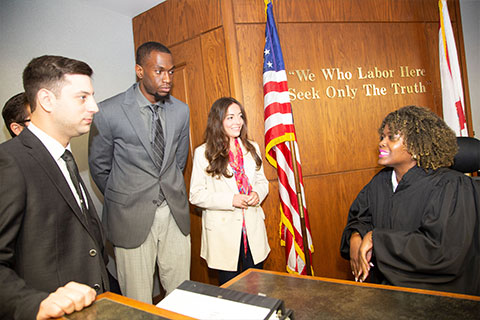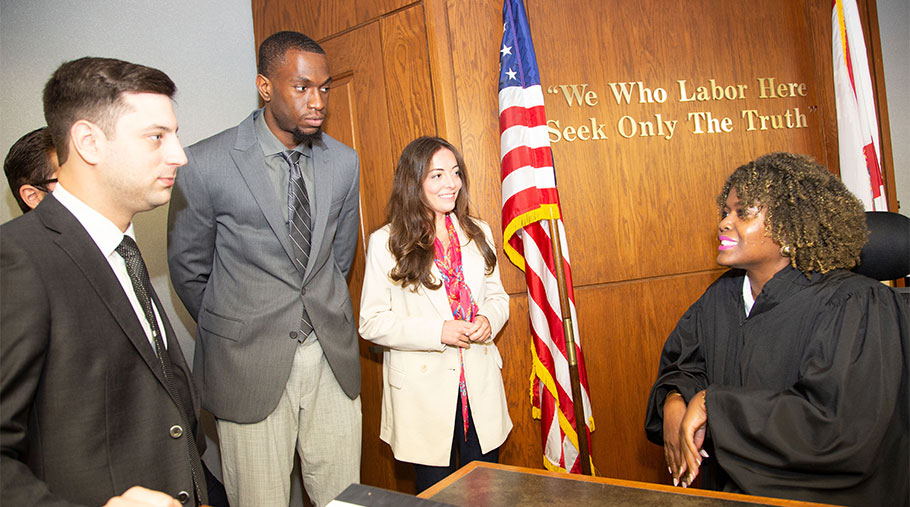Fall 2025 Strict Deadlines
After securing an approved externship field placement, to formally enroll in the Fall 2025 Externship Program, a student must first submit a Student-Agency Agreement (signed by the student and supervising attorney).
The Student-Agency Agreement memorializes the externship relationship between the student, externship field placement and the law school and outlines each party's responsibilities to this course. It is the submission of a complete Student-Agency Agreement that triggers the enrollment process for this course.
Please note that the Fall 2025 Externship Program's course requirements have been adjusted to account for COVID-19's impact, which is reflected in the Fall 2025 Student-Agency Agreement.
Credit/Hours for Fall 2025
The Externship Program is a 3 credit course for which at least 135-hours of work at an approved externship field placement is required.
The classroom component for the Fall 2025 Externship Program will continue to be conducted in a distance learning format; this includes the required skills lectures, research modules and the submission of assignments. The class will meet every week via Zoom. The first class meeting for this course is the Mandatory Orientation.
Externs must make all necessary arrangements to attend their assigned lectures including adjusting their externship field work schedule. Real-time virtual attendance at assigned skills lectures will be strictly enforced.
In addition to completing the required field work hours, remote skill lectures and remote research modules, the extern will be asked to complete documents that will allow the law school to monitor his/her externship experience including Weekly Timesheets, Learning Plans & Goals Memoranda, Mid-Semester Evaluation, Student Final Evaluation and Time Certification Form as part of his/her academic responsibilities for this course.
Policies attached to the Externship Program
- A student must be in good academic standing to participate in the Externship Program.
- A student cannot repeat a prior externship field placement for additional academic credit.
- There is a 9-credit cap on the number of academic credits that a student may earn through the Externship Program that may be used towards his/her graduation requirements in accordance with the UM Law Registrar Office's J.D. Degree Requirements; please see the Self-Audit Form.
Spring 2023 Externship Program Information Session
Watch the information session.





